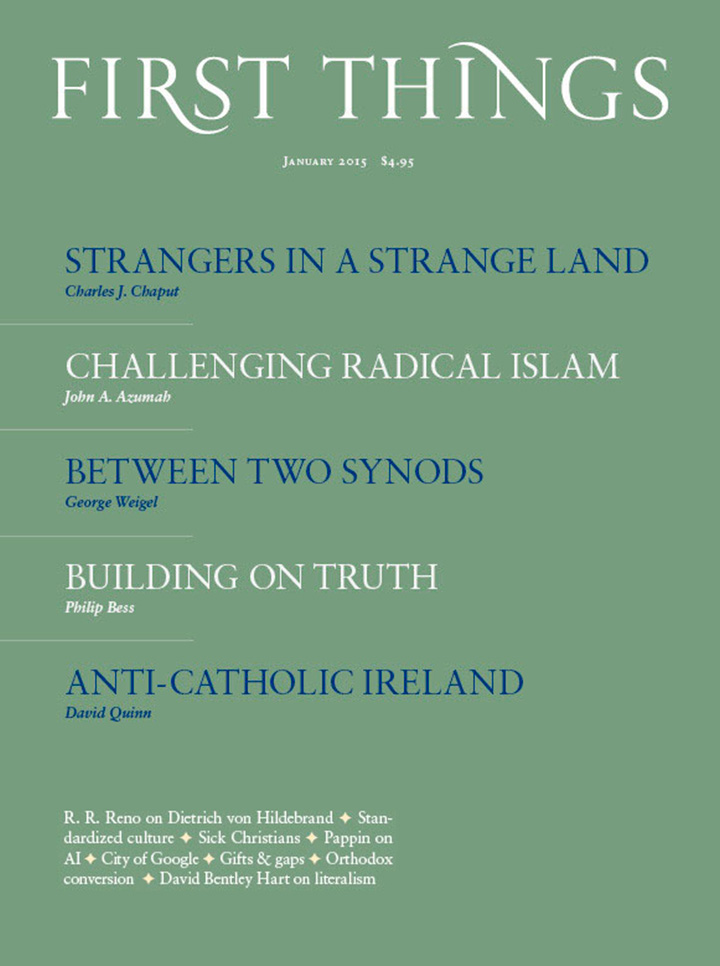A paralyzing gelid vortex of a January morning.
He lay under the covers as the beckoning New Year’s sun
began to manifest itself through the curtains of his bedroom
window, but unlike the busy old sun unwilling
to rise up and begin the day. His better half, it must be said,
was already dressed and downstairs, making
a fresh pot of coffee and—warming to it—baking
a batch or three of her delicious Irish soda bread.
Still, as the minutes floated on and floated by, he kept lying
there, trying to remember the first name or at least
the first letter or first syllable of the woman—a guess,
a hazard, a Matteo Ricci way of trying to remember, trying
to put a name and face together for she who would undergo
a partial hysterectomy that very morning. Well, loss
is loss is loss: a cross, a heavy double cross
to bear when names for people go under with the undertow
and names and things meant to stick fast to this or that
do-hickey thingamajig any handyman would know, go
astray, along with the names of those dear to him, or so—
it goes—he tries to tell himself. But the years accrete
along one’s memory banks and names get buried under,
so that he wonders now if God would know just who
he was intent on praying for, but whose name refused to
reveal itself, vanishing, alas, alas, into the land of Wonder.
But surely the Ineffable would know exactly who
he meant to pray for? After all, what’s in a name?
But how many, really, would undo the name
their loving parents gave them, or want to rate that slew
of echoic vocables on a scale of one to ten?
Did his old dog Sparky, gone these thirty years,
ever assent to be named the name he gave him? Tears,
for Sparky, sunt lacrimae rerum, as he remembers him.
And does God know us only by the names our parents gave us?
And is that how we will be known when we arrive
in or on or at the Empyrean? Or will our names survive
when death comes knocking at our door? And will that save us?
Which one of ten thousand languages, he wonders,
does God prefer to speak, if indeed he must surmise?
And do the angels speak there only with their eyes?
And if he rambles on with such questions will he blunder?
And are there really any answers? Still, doesn’t God
call us by our names, as he called out to chastened Eve
and Adam to come out as they lay hidden in the leaves?
And didn’t he call out to Samuel to come forward,
though he had to call him how many times? And didn’t the Son,
rising fresh that first Easter morning, call Mary by her name,
when his blue-black body, charged with iridescent flame,
came risen from the grave? Mary, Mary. Ask any woman
what she feels when she hears her beloved call
out to her by name, a sound trilling like a bowstring
across the midriff of a plangent cello quivering
even as the music enters the silent mystery of it all?
Or ask the lost boy cornered on one of those thousand name-
less city streets, the El rumbling and the faces gleaming
round him as they taunt him with matches and he’s screaming.
Ask him what he feels when he hears his mother calling out his name.
A Critique of the New Right Misses Its Target
American conservatism has produced a bewildering number of factions over the years, and especially over the last…
Europe’s Fate Is America’s Business
"In a second Trump term,” said former national security advisor John Bolton to the Washington Post almost…
A Commitment to Remembrance (ft. Andrew Zwerneman)
In the latest installment of the ongoing interview series with contributing editor Mark Bauerlein, Andrew Zwerneman joins…


